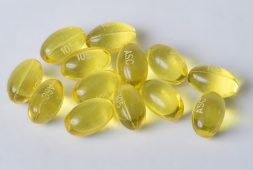
We always assumed that napping was healthy. However, new research suggests that the benefits of daytime napping could actually be an indicator of something else. Regular unplanned sleeping could mean that you suffer from restless sleep at night or other health issues.
Yes, naps have had proven health benefits, but doing it on a regular basis could be linked to a higher risk of developing high blood pressure and stroke. This was according to a study that was published in Hypertension (PDF) as well as the American Heart Association (AHA) journal.
In order to prove their theory, researchers studied data from more than 500,000 adults aged 40 to 60. The data came from the U.K. Biobank, which is a large biomedical database and research resource of anonymized genetic, lifestyle, and health information. The participants of the study were asked to regularly provide them with blood, urine, and saliva samples. They were also required to provide detailed information about their lifestyle. This means that they divulged how often they napped during the day. The study took place from the years 2006 to 2019.
The participants they had were divided into groups. This was based on self-reported napping frequency: whether never/rarely, sometimes, or usually. They compared the findings to those who never napped. Oftentimes, they saw that daytime napping was linked to a 12 percent higher risk of developing high blood pressure. It was also associated with a 24 percent higher risk of suffering from a stroke.
“These results are especially interesting since millions of people might enjoy a regular, or even daily nap,” E Wang, PhD, MD, said in a press conference. He is a professor and chair of the department of anesthesiology at Xiangya Hospital Central South University in Changsha, China. He’s also the corresponding author of the study.
The results also reflected that when napping frequency went up, the risk of that person suffering from high blood pressure also increased by as much as 40 percent.
Too Early to Make Conclusions
This may scare you off from taking naps, but before you jump to conclusions, you need to know that these are not generalized findings that is true for everyone. There are still so many aspects to consider and look deeper into.
The study also saw how a higher percentage of people in the usually napping group belonged to lower education and income groups, they smoked cigarettes, they drank alcohol regularly, suffered from insomnia, or snored. Many also claimed to be night owls who found themselves more active at night.
Any of the factors mentioned can affect the length of the nap and the quality of sleep at night. This can already have a negative health impact. In fact, the experts from AHA recently added “sleep duration” as one of its metrics when it comes to optimal heart health.
“I would worry about people who are taking lots of naps and are sleepy during the day because either they’re not sleeping well at night, or there’s something else that’s making them feel really fatigued,” said Kristen L. Knutson, PhD. She’s an associate professor of neurology at Northwestern Medicine Feinberg School of Medicine in Chicago. However, she was not part of the study made.
The question now is, is it really the nap or what’s behind the need for a nap? That’s because naps, when planned, can actually enhance alertness. This was according to the Centers for Disease Control and Prevention (CDC). Moreover, there are countries that have siesta cultures where midday naps are quite common. Ultimately, the study does not elaborate on the details that constitute a nap. They didn’t really focus enough on its duration or quality.
In relation to what the study authors said about naps, Dr. Knutson stated how naps should be broken down into two types: intentional and unintentional. The former can be classified as a siesta or a quick rest that has become a part of the schedule. The latter, on the other hand,, is like sleeping on a couch in the middle of work. This is more problematic and is indicative of health issues. This is likely what the researchers are referring to.
Knutson also doesn’t want to preach and scare people off from napping. The study doesn’t really point out the biological mechanisms that lead to a stroke.
“If someone is otherwise healthy and likes to nap, I wouldn’t suddenly tell them to stop napping without a better understanding of the association,” she said. “But if someone is taking frequent naps because they feel they’re not getting restorative sleep or they’re very sleepy during the day, then those individuals should discuss this with their physician to try to determine why and make sure they don’t have a sleep disorder,” she also explained.



